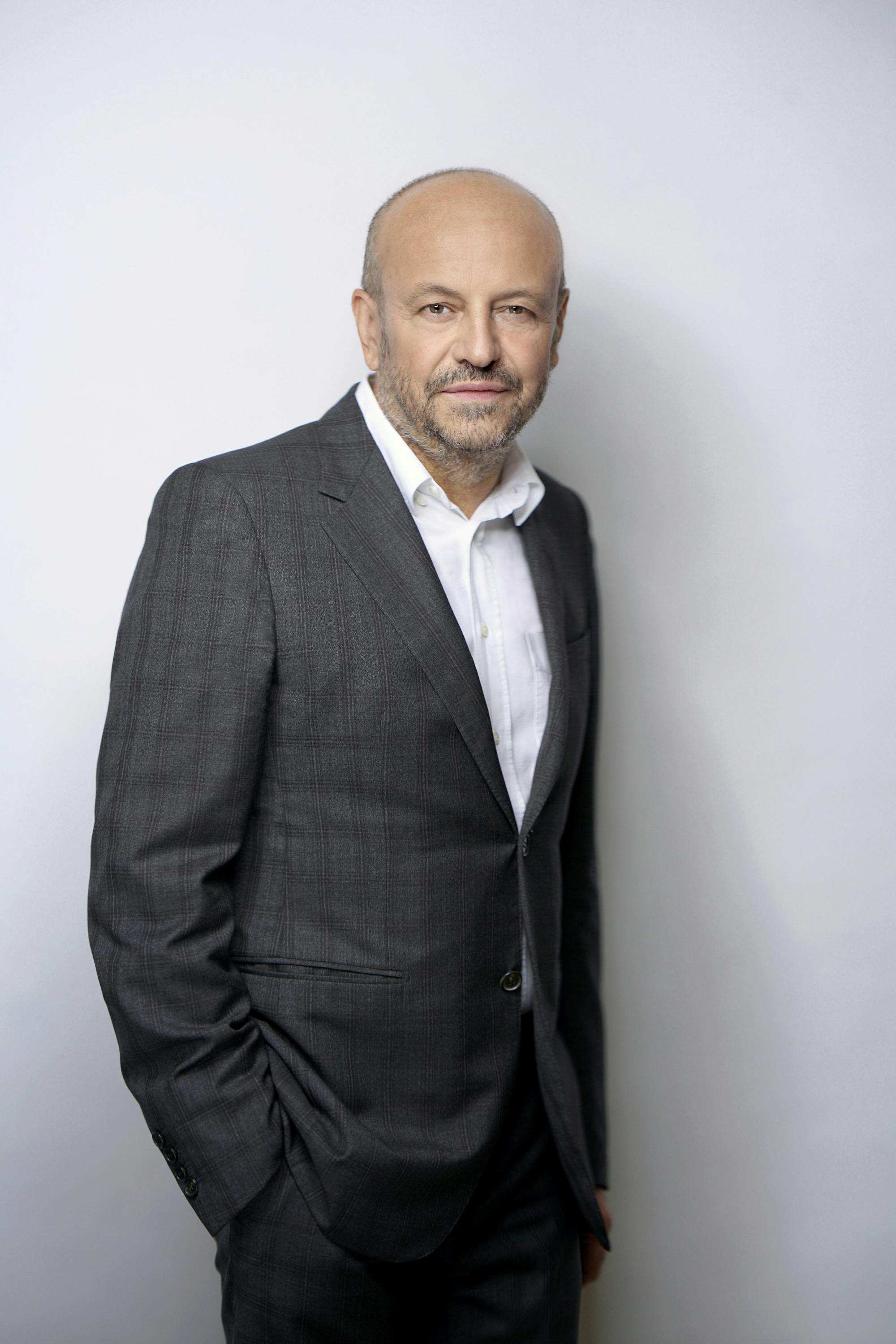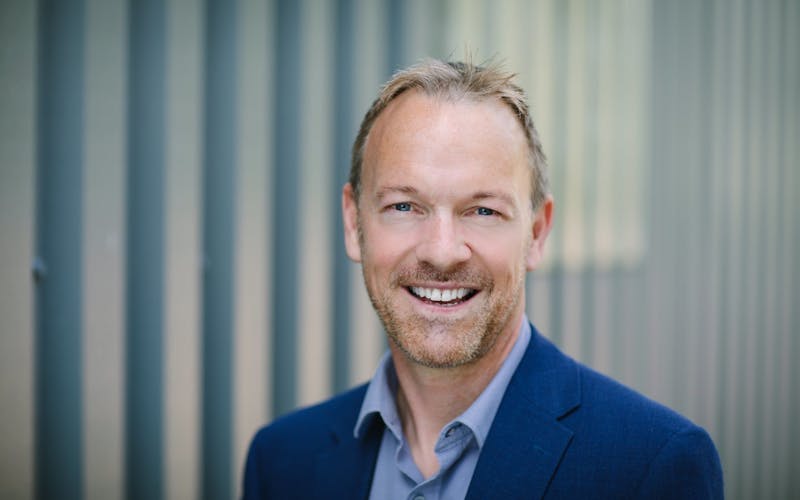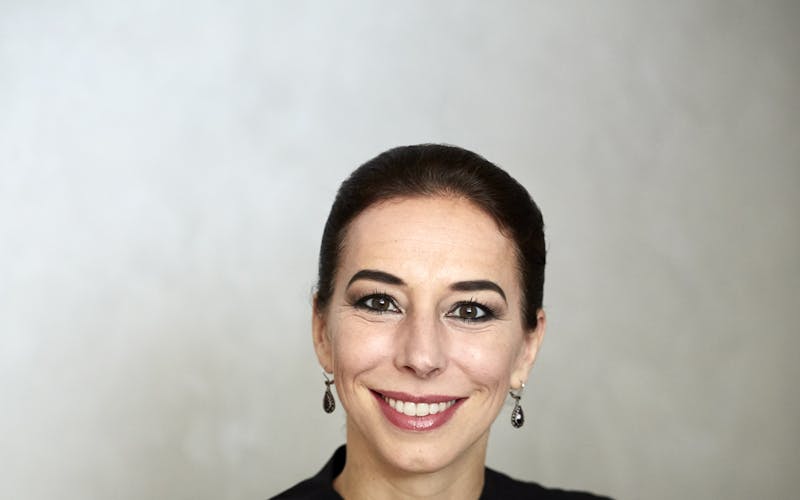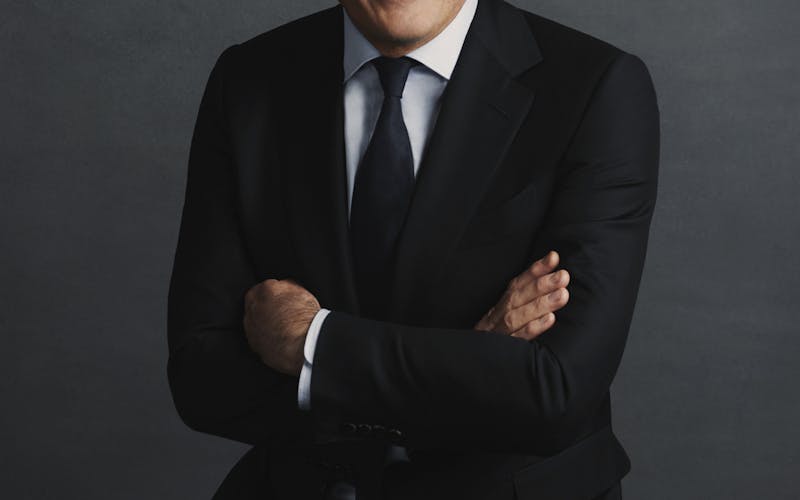

for Walpole members and
non-members available now
at The Londoner



1. Did you always want to be a CEO and if so, what drove you?
I didn’t. My approach to life comes from sport - no one in the company knows this but in a previous life I was a motorcycling champion! When you do sport at a top level, I think it gives you some values - including competitiveness for sure. But competitiveness is not always the right approach as it can come across in a sort of aggressive or negative way. In my case, competitiveness means trying to do the best that you can for you, and it is not related to those that you are “competing” against.
When you compete at motorcycling you have to spend a lot of time finetuning your bike – it’s not just the way you ride that drives success, you learn to understand how important it is to be part of a team: you can’t be successful without the guy that puts the exact pressure you require on your tires. I think through sport you learn to try your best and to trust the other members of your team to share in your goals and objectives.
2. How did you land your first CEO role?
When I started my career, I began as an account manager for France for an Italian tannery, which is quite unusual, but I was studying at university at the time so it was a part time job as I was bilingual French and Italian which was useful as the tannery’s customers included Louis Vuitton and Chanel. When I started in the job I didn’t even think about it as a career, I was a committed student and aspired to graduate two or three times before thinking about what I wanted to do in the future, especially as I was doing a lot of motorcycling races at the same time.
In the end, I think I applied the same approach to my professional career as my sport: to try to do my best, to grow with my team, and to draw the best out of them that I possibly could. I ended up as a CEO in the second company I worked for without even thinking about it.
3. What did you do to prepare yourself for the CEO role and in retrospect what else could or should you have done to prepare yourself for your first CEO role?
I did not prepare myself for the CEO role exactly, but in terms of studying, I graduated in business administration from the Italian School of Economics, and then I studied a little bit in France. This gave me quite a good understanding of accounting and finance standards.
When you’re talking luxury it’s all about sensibility, product, growth marketing, real marketing, and of course retail and commercial development. You need to get a feel for all of these things, be interested and curious and look forward to understanding the market and partners that you are working with. Getting everyone on board with the strategy and explaining why you are going in a certain direction is key.
4. In what ways was your first CEO role different to what you expected?
It wasn’t different to what I expected because by the time I officially became CEO I was technically already in the role. The difference is that you feel a little more responsibility as you have to report to the board, but overall it wasn’t really very different to what I expected at all.
5. In the early days what were your greatest challenges?
Putting teams together - this is where I spend the majority of my time. Sometimes it is more difficult than others, during Covid, for example, everyone was so scared about the future, but when we sat down together and defined the strategy and priorities for the year to come no one was questioning anything and everyone was aligned, and as such we succeeded in an amazing way due to our cohesive effort.
6. When you were finally in the CEO role did you face any internal challenges personally?
No. the greatest challenge was to look further in terms of what to do with the company i.e., what is the future of the company and what can we do to develop? When you are in an operational role you normally look at the next year to come, whereas as CEO you are pushed to look at the next 3-5 to give you more of a strategy. What could the company look like in the future, and where do we want to go?
7.They say its lonely at the top, is this something you experience and if so, how do you deal with it?
It’s a difficult question, I would say yes and no. After working in the industry for years you create your own network, which is a sounding board of opinions when you need confirmation that what you are doing is right. The other point is shareholder relationships – there are moments where you can feel a little alone if you don’t know exactly what they want, and feel you have to make a decision based entirely on your own professional expertise and what you think is the future for your sector. Sometimes there is a question mark over what they may see as the future of the company and what you might.
8. What do you think the qualities are that separate out CEOs and other C-Suite executives?
I don’t know if it’s a quality, but as a CEO you have to have an overview of the company, how it interconnects, and how every single aspect is affected by your decisions. As a C-suite executive you have the ability to look from a particular more specific point of view. This in my opinion is the biggest difference.
9. What qualities do you think a CEO needs to be successful specifically in the luxury sector?
You must have a deep understanding of the commercial, retail, digital and marketing aspects of business. For me, it is about coordinating all the operational aspects of a company and putting together a clear strategy.
10. What advice would you give someone who either wants to become a CEO or is new to a CEO role?
If you want to become a CEO, make sure that you are able to work in a team and grow with a team as alone you can do nothing. Everything you obtain comes from the thinking of the team. You must also be extremely sensitive and open with your team. You must be aware that you are not fixing things but are helping things to change, evolve and adapt. The moment that you stop evolving it is too late.
www.mulberry.com





